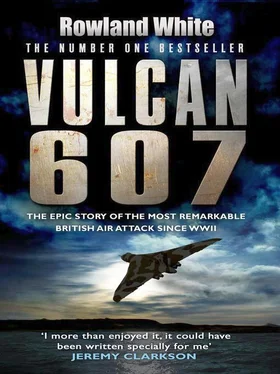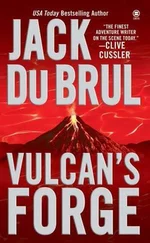Davidoff needed only a few hours ashore at Leith to decide that there were indeed rich pickings for him on the island. Before setting sail the small landing party took notes and pictures and left behind cigarette butts, film packaging and a message scrawled in chalk, ‘ Las Malvinas son Argentinas – 20 December ’, but it was what they didn’t do that caused ripples. While Davidoff had alerted the British embassy and Salvesen’s of his departure, he failed to obtain permission to land on South Georgia at King Edward Point, the official port of entry – thus making his landing illegal.
Despite delivering a formal protest over the incident – which was rejected by Argentina – the British embassy in Buenos Aires gave Davidoff permission to mount his recovery operation. Davidoff told the British that he would not be returning himself. This effectively meant that control of the expedition lay with the Argentine Navy, who were happily providing Davidoff with a 3,100-ton naval transport, Bahia Buen Suceso , for four months at the bargain price of just $40,000. It would soon become apparent to everyone that their motives were far from altruistic. Bahia Buen Suceso set sail for South Georgia on 11 March carrying Argentine marines.
Anchored off Grytviken, HMS Endurance was visiting South Georgia for the last time before returning to the UK for good. Her captain, Captain Nick Barker, knew of the Bahia ’s departure, but had heard nothing more from her. It was usual for ships to broadcast regular weather updates, but Endurance ’s operators heard none. The Bahia ’s radio silence seemed suspicious to Barker, an officer with long experience in the region, but wasn’t, in itself, a reason for staying put. Fuel and stores on the ‘Red Plum’, as Endurance was known because of her red-painted hull, were running low. So, concerned as he was, Barker couldn’t wait for something that might never happen, and late in the afternoon on 16 March he sailed west for Stanley, leaving behind the small contingent of British Antarctic Survey scientists who were spending winter on the island.
* * *
In March 1982, Endurance wasn’t the only British asset facing the prospect of imminent retirement. While she and the Bahia Buen Suceso criss-crossed the South Atlantic, Martin Withers delivered a Vulcan bomber to the Imperial War Museum at Duxford in Cambridgeshire. The big jet came in low over the M11 motorway, performing two touch-and-goes for an airshow crowd on the museum’s short runway before shutting down the engines for the last time. It wasn’t even such an unusual day’s work for the aircraft’s crew. Other Vulcans were being flown into museums around the country. RED FLAG had been an Indian summer; the writing was on the wall for the old bombers.
By the time the Argentine negotiating team returned from New York, the mood in Argentina had hardened. The outcome of the talks no longer mattered. The Argentine Navy – in particular, Admiral Anaya – now seemed to be setting the agenda. And had the plan delivered by Vice-Admiral Lombardo on 15 February been acted on, it might even have worked. Instead, Anaya’s unfortunate deputy was completely wrong-footed.
His plan to take Las Malvinas had contained one clear warning: if the British deployed a hunter-killer, the Argentine Navy would effectively be restricted to Argentina’s home waters. So when news reached him at his Punta del Este resort that Davidoff’s scrap metal dealers had raised the Argentine flag on South Georgia, he knew that Anaya had lied to him. The scrap dealers were no more than a cover story. ALPHA, he realized, was under way and the British, he felt certain, would dispatch a nuclear submarine south. Once it arrived on station, BLUE was off. He had, he calculated, about ten days to act.
‘How do you feel about the Argentines hoisting their flag on South Georgia?’
The news took John Smith by surprise – he was frustrated that he was learning of events so close to home from a friend over 8,000 miles away in the UK. He felt it acutely too. Now running Sparrowhawk House guesthouse in the west of Stanley, he’d once worked for the British Antarctic Survey and had visited South Georgia before spending the next twenty years working for the FIC, the Falkland Islands Company. Although he had been born in Southampton, his roots were now in the Falklands. He’d been a resident for twenty-five years and been married to an islander, Ileen, for twenty-one of them. They had four children, two boys and two girls. Smith loved the islands, cherishing and recording their unique history – a job which included regular inspections of the rusting hulks of ships that had made it to Stanley harbour but no further.
Staying at the guesthouse when Smith heard the news of the scrap dealers’ action on South Georgia was Captain Goffoglio of the Argentine Navy. That evening Goffoglio walked down the hill, past the children’s playing field in front of Sparrowhawk House, to join the islanders at a town hall dance. He spent the evening dancing with a blonde Argentine teacher who was in Stanley to teach Spanish. As they reeled around, both wore knowing, contented smiles. Upset by events on South Georgia, John Smith found it uncomfortable to watch.
Goffoglio’s cheerful reaction to the news from South Georgia contrasted greatly with that of his superior. A horrified Vice-Admiral Juan Lombardo was racing back to Puerto Belgrano against a British submarine that he was sure was on its way. But instead of sending an attack submarine, Britain ordered HMS Endurance to return to South Georgia, stand off Grytviken and await further orders. While ‘Red Plum’ embarked nine extra Marines from the Falklands garrison, fitted the two 20mm cannon that were normally stowed below decks and left her hydrographers behind, she set sail armed with little more than a firm set of the jaw.
In Stanley, ten-year-old Leona Vidal had been looking forward to an excursion aboard Endurance before the ship returned to the UK for winter. She and her classmates had been excited about it for weeks. With their trip scheduled for 1 April, the children planned a practical joke: to pretend one of them had fallen overboard. With Endurance gone, they were upset that their April Fools’ Day prank was off – probably no bad thing. And in any case, their disappointment would soon seem very insignificant. As Endurance steamed east her radio operators intercepted traffic from Argentina to the Bahia Buen Suceso congratulating her on her mission’s success. The situation was very finely poised and the dispatch of Endurance was about to tip the balance.
Air Chief Marshal Sir Michael Beetham sat in his office on the sixth floor of the Ministry of Defence building on Whitehall. As 1950s blocks go, he thought, it wasn’t too bad. A bit of wood panelling here and there helped to dress it up, along with a few oil paintings from the MoD archives. Beetham was a compact, precise man whose kindly demeanour gave little hint of the fierce reputation he’d earned as a young squadron commander.
In the summer of 1940, Beetham had spent the school holidays with his father. A veteran of the First World War, but too old to fight in the Second, he had been posted by the army to Hillsea Barracks on the hills overlooking Portsmouth. Although tales of the trenches didn’t fill the boy with much enthusiasm, his father was keen for him to join the army and the young Beetham expected to follow in his father’s footsteps. Until, that is, from his vantage point at Hillsea, he watched scenes from the Battle of Britain unfold. As the Hurricanes and Spitfires took on the attacking German bombers they cast a spell on him. That’s what I want to do! , he thought.
Читать дальше










![Helen Rowland - The Widow [To Say Nothing of the Man]](/books/752764/helen-rowland-the-widow-to-say-nothing-of-the-man-thumb.webp)
